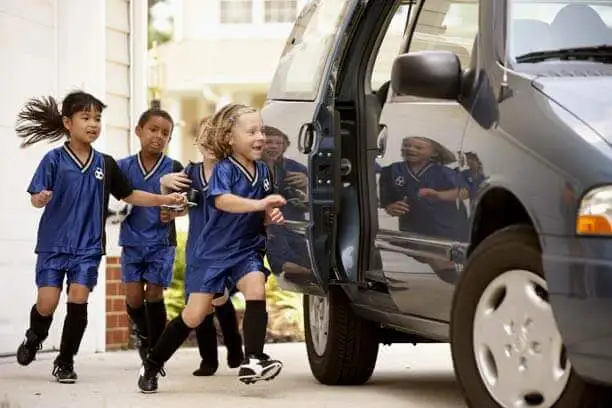How to Choose Between a Minivan and an SUV


As your family grows, it’s only natural to upgrade the household car to something both safer and more spacious. Let’s break down key differences in cost, safety and features in the minivan vs. SUV (sport utility vehicle) debate.
Consumers have more options — and more price points — when it comes to SUVs. Compact and crossover SUVs tend to start in the low-$20,000 range. Budget-friendly minivans like the Toyota Sienna or Honda Odyssey are nearly $40,000.
With seven or more seats, minivans are the go-to family car for a reason. Choosing a SUV with a third row of seats will earn you seven or eight seats but sometimes at the cost of cargo space.
Minivans are known gas guzzlers, with most in the low-20 miles per gallon range. SUVs, on the other hand, can easily get in the 30s — and there are far more hybrid options available. Good news: Both SUVs and minivans increased their fuel efficiency in model year 2021, according to the EPA.
Minivans are often considered one of the cheaper types of vehicles to insure because of their safety benefits and users’ lower-risk driving habits. However, small SUVs will generally cost less to insure than larger, luxury ones.
There’s no clear winner with the cost of maintenance and repairs. Instead, consider brands you trust and are known to be reliable and low-cost over time. Kelley Blue Book recommends Toyota.
Vehicle safety generally comes down to size and weight. The heavier your car is, the more likely you are to continue moving in crashes, according to the Insurance Institute for Highway Safety (IIHS), Highway Loss Data Institute. Why does that matter? In an accident, a small car will come to a complete stop and its occupants will keep moving inside, leading to injuries like whiplash. If you’re in a larger car, you have more protection from this force. Bigger vehicles also have a larger “crumple zone.” The extra space between the bumper and passenger area essentially acts as a cushion for passengers in the event of a crash.
A minivan may be safer than a small SUV for these reasons. IIHS awards vehicles its “Top Safety Pick+” for two factors: how well a car protects occupants in a crash, and its crash avoidance and mitigation technology. (See the 2023 award winners.) However, remember that even a highly rated car requires proper maintenance and careful, cognizant driving.
As you’re deciding between a minivan and an SUV as your next family vehicle, safety features should be top of mind. Many of these come standard on new cars, but it’s important to vet the options as you compare different makes and models. Here’s what to look for.
Certain safety features are required by law. These include airbags, antilock brakes, backup camera, safety belts, tire pressure monitoring system, lower anchors and tethers for children, and traction control.
Protect Your Family on Four Wheels
The last thing you want to do after a day at the dealership is haggle for insurance quotes. Your Farm Bureau agent can help you find the right coverage for you.